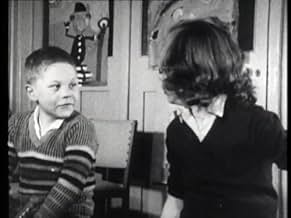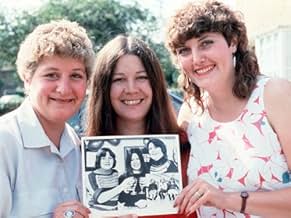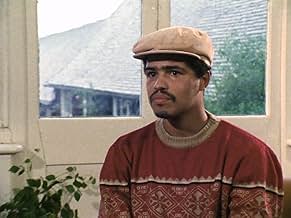28 Up
- Téléfilm
- 1984
- 2h 16min
NOTE IMDb
8,1/10
3,2 k
MA NOTE
Ajouter une intrigue dans votre langueThis eye-opening episode uncovers human nature and the desire to survive and succeed in all its heart-breaking glory.This eye-opening episode uncovers human nature and the desire to survive and succeed in all its heart-breaking glory.This eye-opening episode uncovers human nature and the desire to survive and succeed in all its heart-breaking glory.
- Victoire aux 1 BAFTA Award
- 3 victoires et 3 nominations au total
Bruce Balden
- Self
- (as Bruce)
Jacqueline Bassett
- Self
- (as Jackie)
Symon Basterfield
- Self
- (as Simon)
Andrew Brackfield
- Self
- (as Andrew)
John Brisby
- Self
- (images d'archives)
- (as John)
Peter Davies
- Self
- (as Peter)
Suzanne Dewey
- Self
- (as Suzi)
Charles Furneaux
- Self
- (images d'archives)
- (as Charles)
Nicholas Hitchon
- Self
- (as Nick)
Neil Hughes
- Self
- (as Neil)
Lynn Johnson
- Self
- (as Lynn)
Paul Kligerman
- Self
- (as Paul)
Susan Sullivan
- Self
- (as Sue)
Tony Walker
- Self
- (as Tony)
Michael Apted
- Interviewer
- (voix)
- (non crédité)
Michelle Murphy
- Self (age 7, with Tony)
- (images d'archives)
- (non crédité)
Avis à la une
"Give me the child until he is seven, and I will give you the man." So goes the old proverb, and the proof is in this fascinating documentary, the fourth chapter in an ambitious, ongoing epic of non-fiction filmmaking already two decades in the making at the time.
The project began in the middle 1960s as a modest examination of English class divisions in a group of seven-year old children from different social backgrounds, and has been updated every seven years to show their progress through adolescence to young adulthood. Each individual biography resists the pre-determined notions of (specifically English) status and privilege around which the entire cycle of films is based, becoming instead a record of the same, sometimes rocky path to maturity followed by everyone, regardless of upbringing. At age seven every child is carefree and impressionable; at fourteen most are sullen and inhibited, uncomfortable in puberty; at twenty-one they are, by degrees, poised to reach their potential: eager and naive or cynical and confused.
And by age 28 their niche in society has been secured, for better or (sadly) for worse. The candid self-analysis, and the range of insight and opinion, makes the film (individually, and as a series) an invaluable document of human growth and development, as well as an irresistible reminder of our own personal destiny.
The project began in the middle 1960s as a modest examination of English class divisions in a group of seven-year old children from different social backgrounds, and has been updated every seven years to show their progress through adolescence to young adulthood. Each individual biography resists the pre-determined notions of (specifically English) status and privilege around which the entire cycle of films is based, becoming instead a record of the same, sometimes rocky path to maturity followed by everyone, regardless of upbringing. At age seven every child is carefree and impressionable; at fourteen most are sullen and inhibited, uncomfortable in puberty; at twenty-one they are, by degrees, poised to reach their potential: eager and naive or cynical and confused.
And by age 28 their niche in society has been secured, for better or (sadly) for worse. The candid self-analysis, and the range of insight and opinion, makes the film (individually, and as a series) an invaluable document of human growth and development, as well as an irresistible reminder of our own personal destiny.
Director Michael Apted returns to interview this group of people 7 years later. They are 28 now, and things keep changing. We are now further and further away from the social studies aspects of the original idea. These are great stories about real people. The phrase that you can't make this up is really coming true here. There are still questions about school, about money, about class system, but they are almost distractions now. These people are not just about the stereotypes although some do try very hard.
Neil is now fully gone into the wilds and alone. Suzy has finally found happiness and it's obvious now how miserable she was in the first 3 films. Everybody else is changing in their lives in different ways. Charles has dropped out of the series all together. The series is getting more and more fascinating.
Neil is now fully gone into the wilds and alone. Suzy has finally found happiness and it's obvious now how miserable she was in the first 3 films. Everybody else is changing in their lives in different ways. Charles has dropped out of the series all together. The series is getting more and more fascinating.
Filmmaker Michael Apted's pet project for British television (released theatrically in several countries) is an occasionally fascinating, sometimes boring documentary which spans many years as Apted interviews a handful of British schoolchildren in the 1950s, catching up with them seven years later and so on until the kids have reached the age of 25. For the sake of cinema, it is a shame that the subjects whom Apted initially chose for his portrait turned out to be such colorless personalities. There are a few tragedies which unfold with the heartrending beauty of fictional melodrama, yet this installment runs out of intriguing moments long before it is over. Apted is to be commended, nevertheless, for a brilliant cinematic idea. Followed in due time by "35 Up", "42 Up", "49 Up". **1/2 from ****
The highlights here are Nicholas and his relocation to Wisconsin and Neil continuing down the spiral of depression. Other than that, most of the subjects have just settled into comfortable, and somewhat mundane, lives. I was disappointed not to get more of John's douchiness, but he declined to be interviewed, as did one of the other rich (but far less douchey) kids. It's amusing to see the way Apted keeps trying to badger his subjects into expressing some kind of rage against the upper class, yet they're having no part of his agenda. They all (with the exception of Neil) seem quite content with their standing. I've decided to soldier on with the series, mostly because I've already invested so much in it, but I also remain curious about a few of the subjects.
I got hooked on these. The first one was only mildly interesting, a sort of necessary toll. Everything of interest in it is repeated later, but it was a solid reference for the editions that followed. The next two editions were absolutely captivating.
There's something about that period before you become an adult, a time when switches could flip, butterflies can affect. The conceit of the series is that the British class system is deterministic. So the game in the first films is in engaging with these people in support. We send wishes into the ether, attempting to reach across space and time. The don't grow up until we see them and when they are restricted, it is because of constraints we allow.
Any failure at this stage, any flaw in character is in part our responsibility. So we experience a blizzard of minor successes and defeats. Each person is a collector of urges, each a measure of a successful or failed society. These two (14 up and 21 up) were engaging films.
But by now, these are genuine adults. What errors in formation that could be influenced by our surrogate parenting have already set. Now they are simply beings. The only mildly engaging of these souls is Neil, a bum on the dole. Everyone else is no more now than someone ordinary that you encounter in life, each on their own path, working on narrow futures beyond our control.
The major difference is that some have some things to claim over the others. Different things, but each presented in comparison.
I wonder if I can stand the investment of what comes next.
Following this, you are following Apted as he grows in skill, insight. What he looks for as signs of maturity. I hope he is up to the task. His other films seem to imply that he is one of the failures, that our urges, wishes, prayers didn't reach him.
Ted's Evaluation -- 2 of 3: Has some interesting elements.
There's something about that period before you become an adult, a time when switches could flip, butterflies can affect. The conceit of the series is that the British class system is deterministic. So the game in the first films is in engaging with these people in support. We send wishes into the ether, attempting to reach across space and time. The don't grow up until we see them and when they are restricted, it is because of constraints we allow.
Any failure at this stage, any flaw in character is in part our responsibility. So we experience a blizzard of minor successes and defeats. Each person is a collector of urges, each a measure of a successful or failed society. These two (14 up and 21 up) were engaging films.
But by now, these are genuine adults. What errors in formation that could be influenced by our surrogate parenting have already set. Now they are simply beings. The only mildly engaging of these souls is Neil, a bum on the dole. Everyone else is no more now than someone ordinary that you encounter in life, each on their own path, working on narrow futures beyond our control.
The major difference is that some have some things to claim over the others. Different things, but each presented in comparison.
I wonder if I can stand the investment of what comes next.
Following this, you are following Apted as he grows in skill, insight. What he looks for as signs of maturity. I hope he is up to the task. His other films seem to imply that he is one of the failures, that our urges, wishes, prayers didn't reach him.
Ted's Evaluation -- 2 of 3: Has some interesting elements.
Le saviez-vous
- AnecdotesPeter Davies lost his job as a teacher because of the anti-Thatcher comments he made in this film.
- Citations
Neil Hughes: If the state didn't give us any money, it would probably just mean crime and I'm glad I don't have to steal to keep myself alive. If the money runs out then for a few days there's nowhere to go and that's all you can do, I simply have to find the warmest shed I can find.
- ConnexionsFeatured in 35 Up (1991)
Meilleurs choix
Connectez-vous pour évaluer et suivre la liste de favoris afin de recevoir des recommandations personnalisées
Détails
- Durée
- 2h 16min(136 min)
- Couleur
- Mixage
- Rapport de forme
- 1.33 : 1
Contribuer à cette page
Suggérer une modification ou ajouter du contenu manquant






















